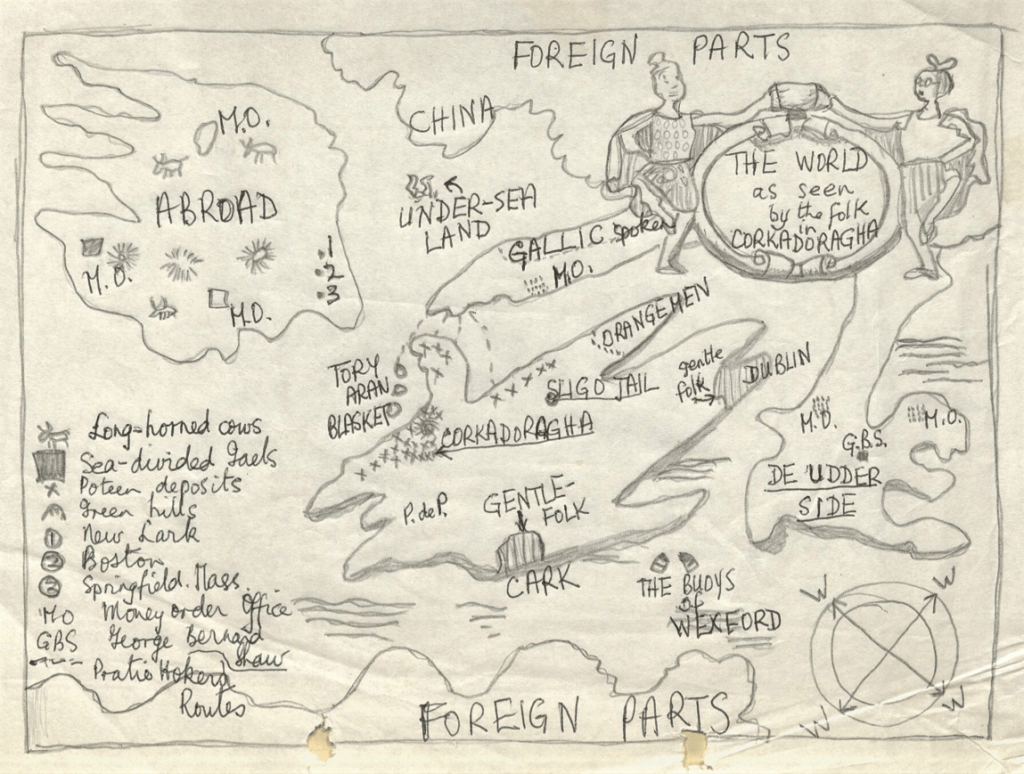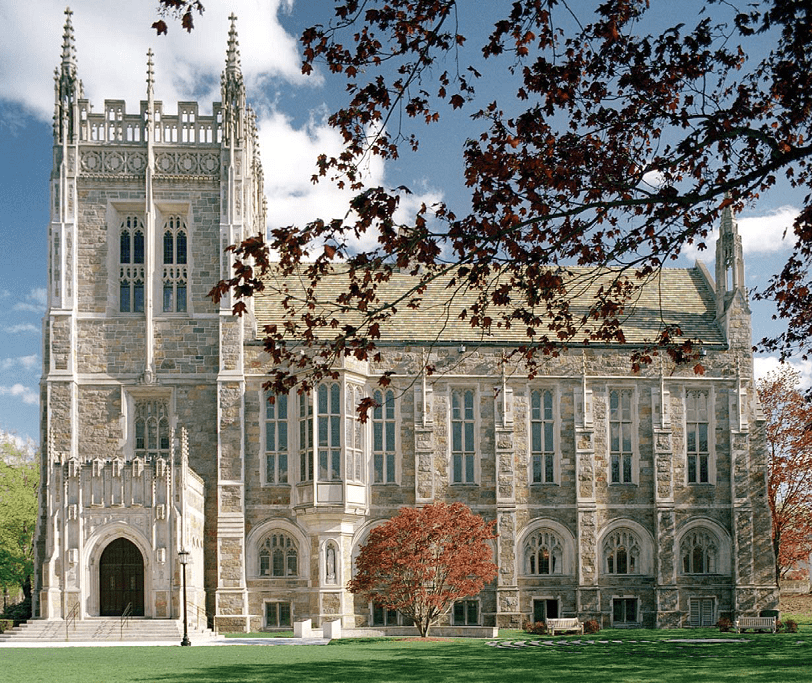Home
General registration closing a day early to allow organizers respite to mourn the anniversary of the unfortunate passing of Brian O'Nolan, who was taken to his rest on 1 April 1966.
Though capacity limits have been reached for main conference events, seats are still available for the performance of Arán agus Im (“Bread and Butter”), a theatrical presentation on the Irish language and breadmaking by Manchán Magan, which will be held at Higgins Hall, Room 300, on the Boston College campus on Friday, April 8, from 4:30-6:15pm. Please complete the registration form if you wish to attend that event, and feel free to bring and invite friends.Boston College is happy to host the VIth International Flann O’Brien Conference. After Vienna, Rome, Prague, Salzburg, and Dublin, this will be the first time Flanneurs will gather outside Europe.
Delayed by a year due to Covid, the conference will take place in Boston from Wednesday evening, April 6, through Saturday evening, April 9, 2022. We offer a hearty advance welcome to Flannoraks for an opportunity to return, finally, to the delights of a face-to-face conference (sorry, no virtual or hybrid participation, but those who do come might encounter some form of virtual or augmented reality!).
All are invited to respond to our Call for Papers. Please submit your proposal by the February 28 deadline (sorry, you missed it, but you can register for the conference until April 1 — no foolin’!).
The title and theme of the conference—Flannagain: in far Amurikey—speak to the circumstances of its inception and its venue: our (hoped-for!) relief from the pandemic, and our location at the Hub of the Unified Stations.
Call for Papers
The six suggested topics for this sixth international conference are suitably broad. We would be particularly keen to receive proposals that speak to the following themes:
- Diasporic Flann: O’Nolan at home and abroad
- Eco-Flann: Environmental concerns in O’Nolan’s works
- Techno-Flann: O’Nolan and evolving technologies
- Flanntastic: O’Nolan and science fiction
- Flann-Panned: O’Nolan works in times of distress
- Flann Refashioned: O’Nolan translated and adapted
But far be it from us to limit anyone’s imagination, so don’t hold back if your topic hails from some other dimension.
Please use this online form to submit your 250-500 word abstract by February 28, 2022. Notifications will be sent by March 7 (again, yer too late …).
Keynote speakers will include:
- Kevin Barry (author)
- Maebh Long (critic, editor)
- Fintan O’Toole (columnist, biographer)
- Catherine Flynn (literary critic)
- Frank McNally (journalist)
Flann O’Brien Archives
Boston College’s John J. Library holds the major portion of Flann O’Brien’s surviving archives. Browse the online finding aid, and plan your conference travel to allow time for a research appointment. Visit the Burns Library website or contact Burns Librarian Christian Dupont for more information.
Images on this conference website represent Flann O’Brien artifacts held by Burns Library. See the sources page for details. For more, visit our online exhibit, “Genius of Genre: The Pen Names and Personas of Flann O’Brien.”

Once supposed to have been drawn by O’Brien himself, this pencil sketch with lettering in ink is now securely attributed to An Béal Bocht translator Patrick Power, thanks to his daughter, who witnessed her father’s dexterous feat of ingenuity and how he snuck his initials into the middle of the pancake, round about where Killarney ought to be. The original version, drawn by Seán Ó Sullivan, featured place names in Irish. Power slyly substituted ‘P. de P.’ (Patrick De Paor) where Ó Sullivan had ‘P. de B.’ (Pádraig de Brún?)—all this according to nephew Sean Enda Power, who kindly posted the story to the IFOBS Facebook page after seeing the map here. Power’s version of the map is reproduced on the endpapers of the limited edition of The Poor Mouth with Ralph Steadman’s illustrations, issued by Granada Publishing in London in 1973 (and only that edition).
Burns Library also holds O’Brien’s personal copy of the first edition of An Béal Bocht, published in Dublin in 1941, which reproduces Ó Sullivan’s map on its endpapers (Ó Sullivan also did the dustjacket artwork). For more on the maps, including erroneous speculations about its origins and more cogent ones about its cryptic meanings, listen to this podcast by Boston College graduate student Meghan Lavin and read this blog post by Noel Fahey.
Boston College is a Jesuit university located in Chestnut Hill, Massachusetts. It was founded in 1863 to serve Catholic populations, many of whom were Irish immigrants and their descendants. Boston College maintain strong connections to Ireland through its Irish Studies program and a headquarters in Dublin.

